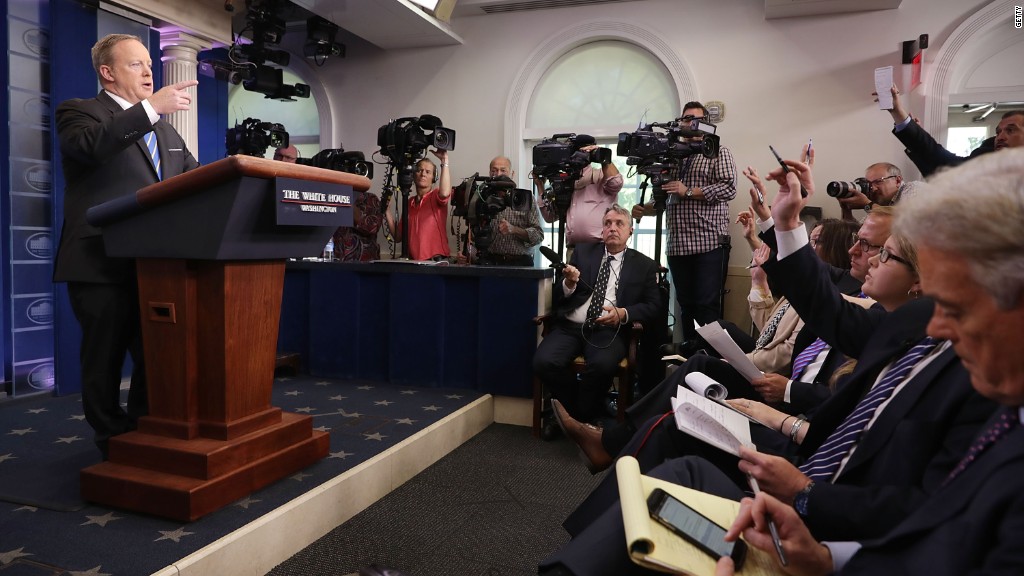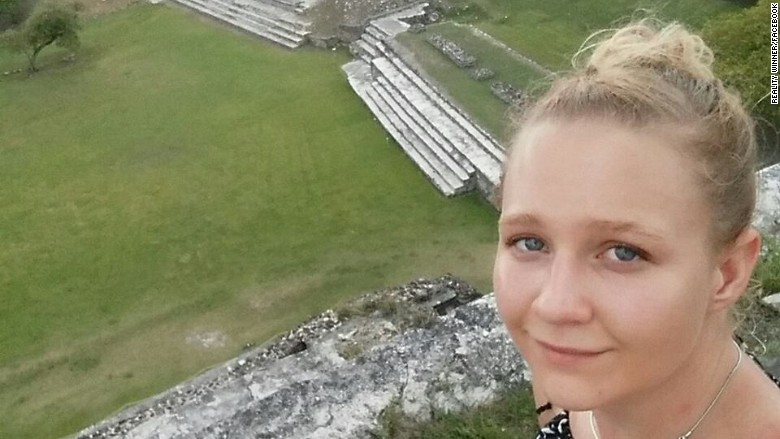
The Intercept was launched in 2014 thanks in part to the momentum created by a groundbreaking scoop from one of its founders, Glenn Greenwald. Less than a year before the website went live, Greenwald, then with the Guardian, reported on National Security Agency documents provided by Edward Snowden.
The disclosures set off a debate on privacy and government surveillance that continues to play out today. Lawmakers from both parties and security officials criticized both Snowden and Greenwald, who won a Pulitzer for the reporting, for making the documents public.
In the years since, The Intercept has established itself as a source for cutting-edge journalism, particularly in the realms of national security, digital privacy and government secrets.
On Monday, four of its reporters -- none of whom were Greenwald -- revealed a top-secret NSA document detailing an effort by Russian intelligence to hack into a U.S. voting software supplier prior to last year's election.
Shortly after the story was published, there was another major development: The Justice Department announced that Reality Leigh Winner, a 25-year-old contractor who allegedly leaked the document upon which The Intercept's reporting was based, had been arrested and charged with removing classified material from a government facility and mailing it to a news outlet.
Related: What we know about Reality Winner
That news ushered in another spirited debate. By Monday night, the big question was not whether Russia had compromised the U.S. election, but who was to blame for Winner's arrest.
The FBI affidavit detailing the charges against Winner provides information on the trail that the government says led to her arrest. According to the affidavit, after examining the document shared by The Intercept, government officials determined that it was creased or folded -- suggesting that it had been printed.
From there, according to the affidavit, authorities determined that only six individuals had printed the top secret report. After searching Winner's work computer, they discovered that she had corresponded with The Intercept on that computer -- not about the document, but about a podcast.
All that suggests that, if indeed she is the leaker, Winner could have taken more steps to cover her tracks. But critics of The Intercept were quick to zero in on the affidavit's reference to the crease, which the government suggested provided a crucial clue that led to her arrest.

It seems doubtful, however, that government officials wouldn't have checked the printing records -- crease or no crease. But the fold in the document was spotted after The Intercept shared it with a government agency, according to the affidavit. And government investigators appear to have received another clue over the course of The Intercept's reporting.
The affidavit said that one of the reporters working the story contacted a government contractor via text message to review the documents. Although the contractor told the reporter he believed the documents to be fake, he still notified the government of the exchange. Over the course of the interaction, the affidavit indicates, the reporter revealed that the documents were sent through the mail and postmarked Augusta, Georgia -- where Winner lives.
Two of the reporters credited on The Intercept's story, Matthew Cole and Richard Esposito, have been previously tied to a case of a former CIA officer, John Kiriakou, convicted for leaking classified information.
In a statement released Tuesday, The Intercept said, "While the FBI's allegations against Winner have been made public through the release of an affidavit and search warrant, which were unsealed at the government's request, it is important to keep in mind that these documents contain unproven assertions and speculation designed to serve the government's agenda and as such warrant skepticism. Winner faces allegations that have not been proven. The same is true of the FBI's claims about how it came to arrest Winner.
"We take this matter with the utmost seriousness. However, because of the continued investigation, we will make no further comment on it at this time."
Betsy Reed, The Intercept's editor-in-chief, declined to comment, citing the government's ongoing investigation.
Barton Gellman, who also reported extensively on the Snowden documents, said Winner likely would have been a lead suspect "no matter what," but still faulted The Intercept for "egregious mistakes that doomed" her.
"It handed USG a color copy of original doc & told a clearance-holding contractor the doc was mailed from Augusta. Where source lives," Gellman tweeted.
Erik Wemple, a media critic for The Washington Post, took a more forgiving view.
"It's ever so easy to look back at a reporter's decisions and mock them. With that luxury, we can question the wisdom of telling the contractor about the Augusta postmark, not to mention sending the documents to the contractor... Yet the mistakes of the leaker before the Intercept even received the document would likely have sealed her fate, regardless of any clumsiness by the reporter in verifying the scoop. It's apparent that the document came straight out of the blue, with little or no instructions as to sensitivity and handling," Wemple wrote.
Some, like former George W. Bush speechwriter David Frum, lamented that the original bombshell had been lost amid the debate.
"After we finish blaming leaker and leakee for a leak that in no way harmed US security," Frum asked on Twitter, "can we make available some time to discuss the leak?"


